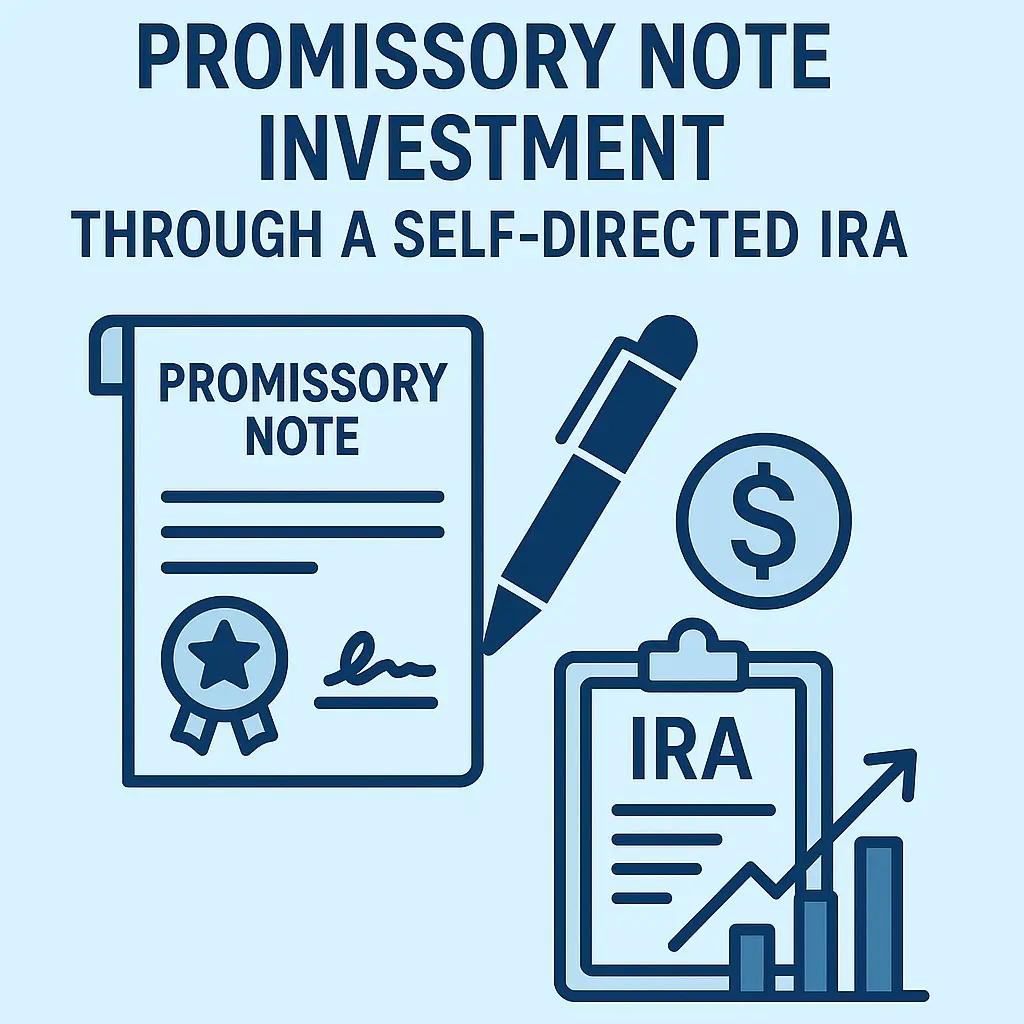
Promissory Note Investment Through a Self-Directed IRA
Building strong retirement savings requires diversification. While most investors are familiar with conventional assets like stocks, bonds, and mutual funds, few branch out into alternatives such as promissory note investing—especially when using a Self-Directed IRA (SDIRA).
If you want to diversify your retirement portfolio further, investing in promissory notes through an SDIRA can provide opportunities for higher returns and predictable income, all within the tax-advantaged environment of your IRA.
What Is Promissory Note Investing?
A promissory note is a legally binding agreement where one party commits to lend money to another under agreed terms. When you invest in promissory notes inside your SDIRA, you act as a private lender, providing funds to individuals or businesses in exchange for interest payments and eventual repayment of the principal.
A promissory note will typically outline key details such as:
- Loan amount
- Interest rate
- Repayment schedule
- Collateral (if any)
- Other agreed terms
Your SDIRA custodian holds the note and receives payments directly into your account. Depending on your account type, earnings grow tax-deferred (Traditional IRA) or tax-free (Roth IRA).
Types of Promissory Notes
Promissory notes generally fall into two categories:
- Secured Notes
- Backed by collateral, often real estate.
- Provides more security since the SDIRA can take possession of the asset if the borrower defaults.
- Unsecured Notes
- Backed only by the borrower’s credit.
- Riskier but may offer higher returns.
Why Use Promissory Notes in an SDIRA?
Promissory note investing inside an SDIRA offers several potential benefits:
Potential for Higher Returns
Promissory notes, particularly hard money loans, can pay higher interest rates than traditional investments.
Predictable Income Stream
Fixed loan terms allow you to anticipate consistent payments, creating a reliable retirement cash flow.
Portfolio Diversification
These investments help you move beyond the stock market and reduce exposure to volatility.
Tax Benefits
Earnings in an SDIRA grow tax-deferred (Traditional IRA) or tax-free (Roth IRA), maximizing compounding.
Risks to Be Aware Of
As with any investment, promissory notes carry risks:
- Default Risk: If the borrower defaults, you could lose your investment, especially without collateral.
- Liquidity Risk: Promissory notes are generally illiquid, limiting access to funds before maturity.
- Due Diligence Requirement: You must carefully vet borrowers, collateral, and repayment history.
- IRS Compliance: Transactions with “disqualified persons” (such as yourself or relatives) can trigger severe penalties.
- UBIT Risk: Most note investments are exempt from Unrelated Business Income Tax (UBIT), but certain scenarios (like converting debt into equity) could create unexpected tax obligations.
Key Takeaways
Promissory note investing within a Self-Directed IRA isn’t for everyone. However, for seasoned investors seeking higher returns, diversification, and more control, it can be a powerful strategy.
Before moving forward:
- Understand the risks.
- Stay compliant with IRS rules.
- Conduct thorough due diligence.
- Always consult with a financial advisor or tax professional to ensure this investment aligns with your retirement goals.
Whether you want to invest in real estate, crypto, or private companies, we can help you get started with a self-directed IRA.
Call us today at (866) 402-2781
Email us at info@uDirectIRA.com
Visit www.uDirectIRA.com
Let’s make your retirement investing work for you, not just Wall Street.

